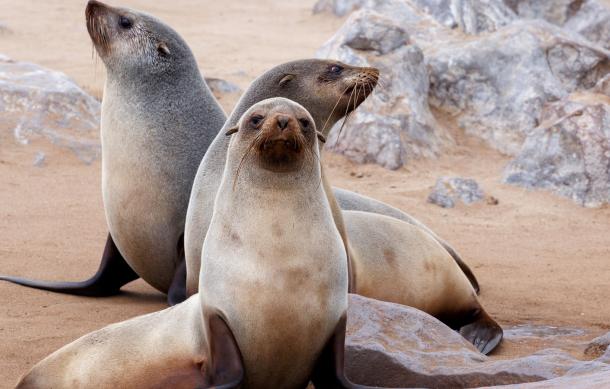
Fisheries biologist Lessyn Kalwenya believes seal meat has the potential to add to the list of local delicacies.
She says it will come with the added advantage of health benefits due to its oil being rich in Omega 3.
Kalwenya says seal meat will not only help feed thousands but can also help control and sustainably harvest the country's seal quota, which at the moment is underutilised.
The scientist was speaking during a consultative meeting with the Parliamentary Standing Committee on Natural Resources and stakeholders on the motion on the devastating impact of an increasing seal population on fish stocks in Namibia, held at Walvis Bay.
The Cape fur seal colony on the Skeleton Coast of Namibia is the biggest on the African coast, with a population of about 1.5 million seals estimated to consume about two million metric tonnes of fish per year.
The male seals eat twice as many fish compared to those caught by fishing companies, which can lead to the extinction of certain species.
According to Kalwenya, a recent discussion around seals highlighted the possibility of promoting the consumption of their meat as one of the ways to control the population through responsible harvesting.
Currently, countries such as Japan, Sweden, Norway, Iceland, the Faroe Islands, the Inuit, and other indigenous peoples of the United States, Canada, and Greenland eat seal meat.
Farmers are also using seal oil for their cattle, and the same oil has been processed into capsules of Omega 3 that are consumed as a supplement by pregnant women.
Namibians, he added, can produce coats, shoes, and bags with seal fur.
A total of 86 000 seals are currently up for harvesting until November this year, but so far no harvesting has taken place since last year.
The seal sub-sector can be an important contributor to development, has eight rights holders and 86 beneficiaries who are all Namibians, and employs 105 workers.





